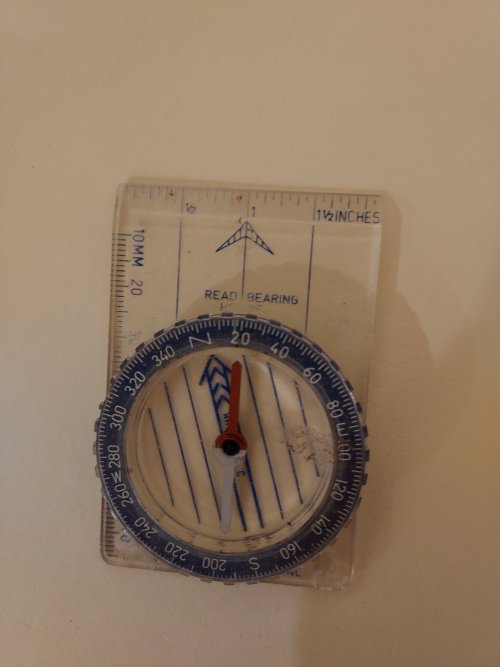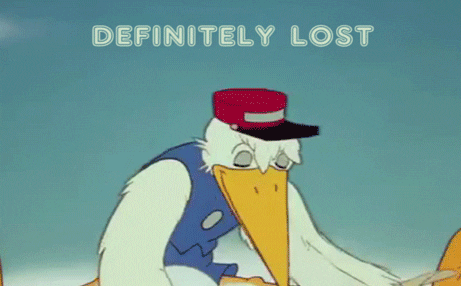Navigation
Install the app
How to install the app on iOS
Follow along with the video below to see how to install our site as a web app on your home screen.
Note: This feature may not be available in some browsers.
More options
You are using an out of date browser. It may not display this or other websites correctly.
You should upgrade or use an alternative browser.
You should upgrade or use an alternative browser.
who actually knows how to use a map and compass
- Thread starter 220yotekiller
- Start date
Rzrbck918
Well-known member
I keep a compass and know how to use it. I don't carry topo maps with me but I do study them prior to leaving home. I only use the compass in snow or fog and as a self rescue device.
I use a compass. Do not use a GPS or phone. The phones are spotty n not dependable. I do carry 3 compasses. I can talk myself into believing that the compass is wrong. I've been the problem.
I just never made the leap to electronics and don't carry a phone at home even. I get lost all the time when out. Feel a bit of oh no. And move on.
To get started I'll take a reading from the start. Note the general direction n get going. I get lost because I can get so into the moment. All senses on high. Hunting. Then usually end up getting lost. I have been able to find myself back. Spend a few nights in the woods. Nothing serious.
Our cabin is remote n there's no roads or trails. It's just my bag. Hey I'll own it man. Maybe you should try it
I just never made the leap to electronics and don't carry a phone at home even. I get lost all the time when out. Feel a bit of oh no. And move on.
To get started I'll take a reading from the start. Note the general direction n get going. I get lost because I can get so into the moment. All senses on high. Hunting. Then usually end up getting lost. I have been able to find myself back. Spend a few nights in the woods. Nothing serious.
Our cabin is remote n there's no roads or trails. It's just my bag. Hey I'll own it man. Maybe you should try it
LuketheDog
Well-known member
I used to get a custom topo map printed for every new area I hunted and carried my compass along with my GPS, I found it easier to look at a map to figure out where I wanted to go that pan around a little screen, but I haven't done it in years now. I carry my phone and OnX as my primary navigation tool and my watch has the function as well. I did carry topo maps and a compass with me to Alaska this fall though...
Straight Arrow
Well-known member
Whodathunk? Third week in August during Wyoming-Montana drought; rained five days straight in the Thorofare, even snowed up high, ice on the tent up Pass Creek. The Solar Monkey could not keep up, so no more ONX with all the helpful way points pre-selected. Thankfully I brought a backup map and my trusty Army issue compass, so there was no confusion about locations, directions, and trails to enjoy slogging down!
Always carry a compass and map in the pack.
Always carry a compass and map in the pack.
When I was surveying for the forest service, we would sometimes get collage kids as interns in the summer. We got this one kid named Jon, who was as green as they get when it came to getting around in the forest. They issued him a compass on his first day and I told him he needed to set the declination since it was a new compass. He told me it didn't matter because he didn't know how to use it and didn't plan on learning. It was too old fashion. I set it for him anyway. I told him that his whole job was dealing with bearings and distances and that a compass was a pretty handy thing for that. Then I told him the most important part of the job was getting from the truck to the job site in the morning and getting back to the truck at the end of the day. A compass can come in pretty handy for that as well. He said he had GPS on his phone and that was all he needed. I will admit he did pretty good without a compass. He got lost a few times like most greenhorns, but we always found him. Then one day after three summers as an intern and two years hired on as a land surveyor, he came up to me one day and asked me to teach him how to use a compass. I was so proud of that boy it damn near brought a tear to my eye. I know he wanted to learn a lot earlier but didn't want to admit that I was right.
SAJ-99
Well-known member
This got me searching to relearn how.

 www.rei.com
www.rei.com

How to Use a Compass | REI Co-op
Once you know how to use them, a map and compass become indispensable navigational tools. This article explains the basics of how to use a compass, and it includes videos that demonstrate those skills.
being a geology major and having required summer field camps got me pretty good with compasses, triangulation, and navigation. in the san juan mountains and the mountains of northern new mexico we would be thrown into 20+ square miles of public land with unmarked, blank topo maps that we had to turn into a finalized geologic map of the area over the course of 3-4 days with nothing but a 700 dollar geologic Brunton, boots, a field notebook, some hydrochloric acid, a 10x hand lense, and a pack of colored pencils along with food and water for the day. boy those were fun days.
barely touched one since. but i keep one in my pack.
in many places in the mountains here in colorado all you need to do is hike down drainage and you'll hit a road in less than five miles if you're seriously hopelessly lost.
barely touched one since. but i keep one in my pack.
in many places in the mountains here in colorado all you need to do is hike down drainage and you'll hit a road in less than five miles if you're seriously hopelessly lost.
Last edited:
Happy Myles
Well-known member
- Joined
- Sep 11, 2020
- Messages
- 306
a couple of thoughts on comments by individuals after their rescue . He had a compass but knew North could not be where it indicated. Felt he was smarter than the compass. Another had a compass but did not have a clue how to use it. Guess he thought it was a good luck charm.
I know how to, Marines taught me in college. I always carry a compass but paper maps are only in new areas now. Compass is for worst scenarios in bad weather with a dead phone to make sure I’m hiking in the right direction.
Sagebrush1
Well-known member
After the Chinese person invented the first compass, I’m sure a bunch of sailors were sitting around lamenting how all the kids weren’t using the stars like they used to. Ha!
(I do carry and know how to use a compass by the way)
(I do carry and know how to use a compass by the way)
Howie
Well-known member
noisy
Well-known member
I bring a compass, but don't bring a paper map anymore. I use my phone and always have a Garmin E-trex 20 in my pack as a backup.
I use a compass and map. I fiddled with a Garmin many years ago and on the first outing a system rolled in and eliminated the signal. That was that as far as I'm concerned.
One time I went hunting with a guide. Great fellow and an excellent guide. He navigated by maps saved on his phone. Lost on me, but when fog rolled in, and he couldn't get his bearings. I pulled out my compass and showed him where north was. Where camp was and which direction our objective was. Maybe the high point of my outdoors career. But there is still time...
One time I went hunting with a guide. Great fellow and an excellent guide. He navigated by maps saved on his phone. Lost on me, but when fog rolled in, and he couldn't get his bearings. I pulled out my compass and showed him where north was. Where camp was and which direction our objective was. Maybe the high point of my outdoors career. But there is still time...
Rob96
Active member
Back in 1988 I was at Ft. Dix going through air base ground defense school and one of the courses was navigation. Me and my Ranger Buddy end up off the reservation on some highway.
When I was in the army, other than one day in basic, I never got to do any orienteering because I was always on the crew that designed and laid out the course. Then while everyone else was running around in the woods pointing their compasses at stuff, we would be manning the check stations. Which was pretty good duty as long as you hid the beer on those rare occasions that someone actually showed up.
Similar threads
- Replies
- 11
- Views
- 2K
- Replies
- 1K
- Views
- 54K
- Replies
- 31
- Views
- 3K






